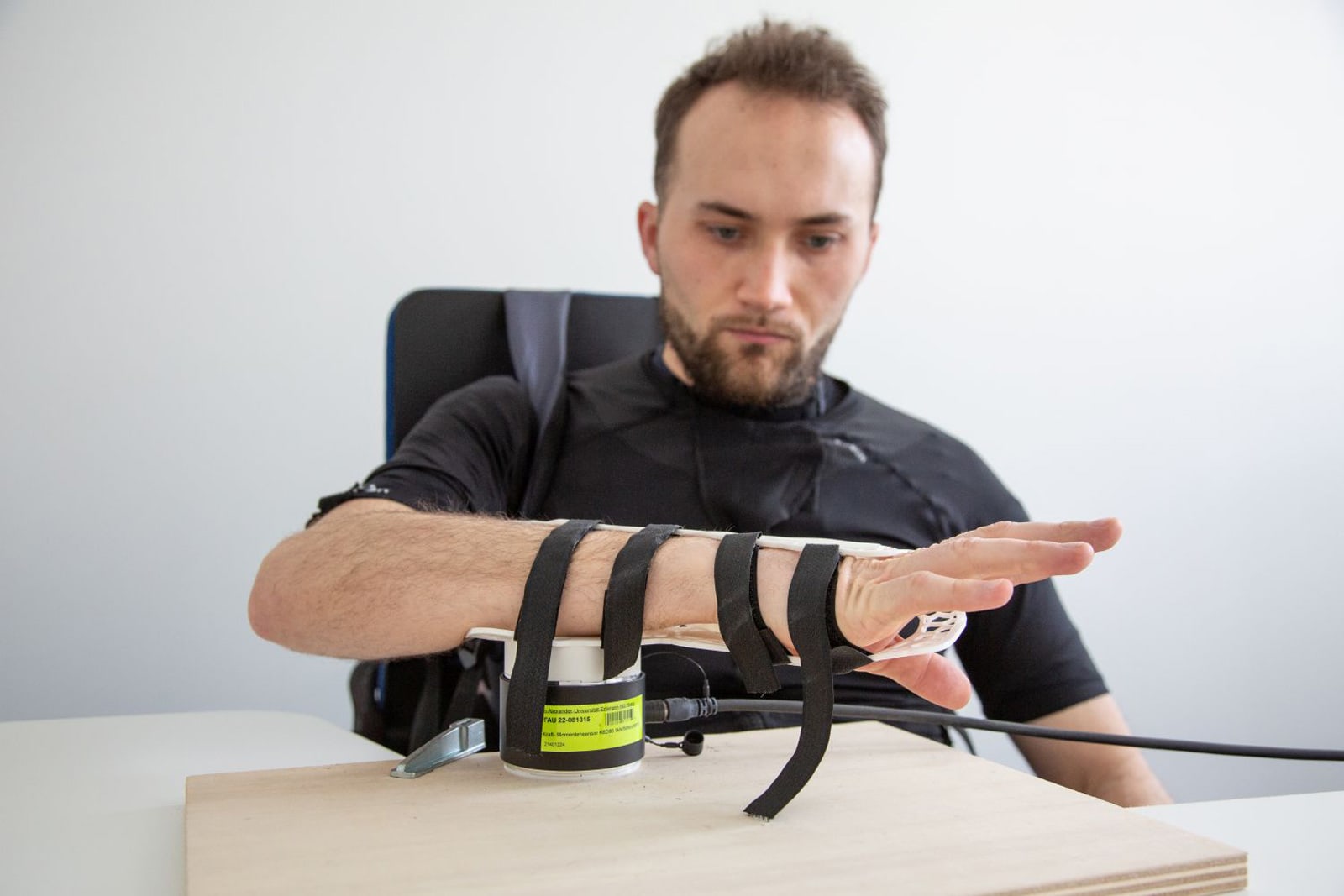
An intelligent suit could significantly improve rehabilitation after a serious spinal cord injury. The AI-supported solution combines electrical stimulation of muscles with support for movement using artificial tendons and reacts to patients’ intended movements.
The Exo-Suit consists of a compression jacket, arm cuffs, and gloves and combines the support systems available to date such as functional electrical stimulation (FES) and pulley mechanics, but has one special addition: AI-supported recognition of patients’ intended movements.
“Integrated sensors measure muscle activity,” explains Marek Sierotowicz, a doctoral candidate involved in the project. “Self-learning algorithms take this input and use it to calculate the patient’s intended movement and adjust the assistance systems accordingly.” Specifically, this means that the AI tells the FES system and the exo-suit where muscle contractions should be triggered or pulleys tautened in order to support the intended movement.



